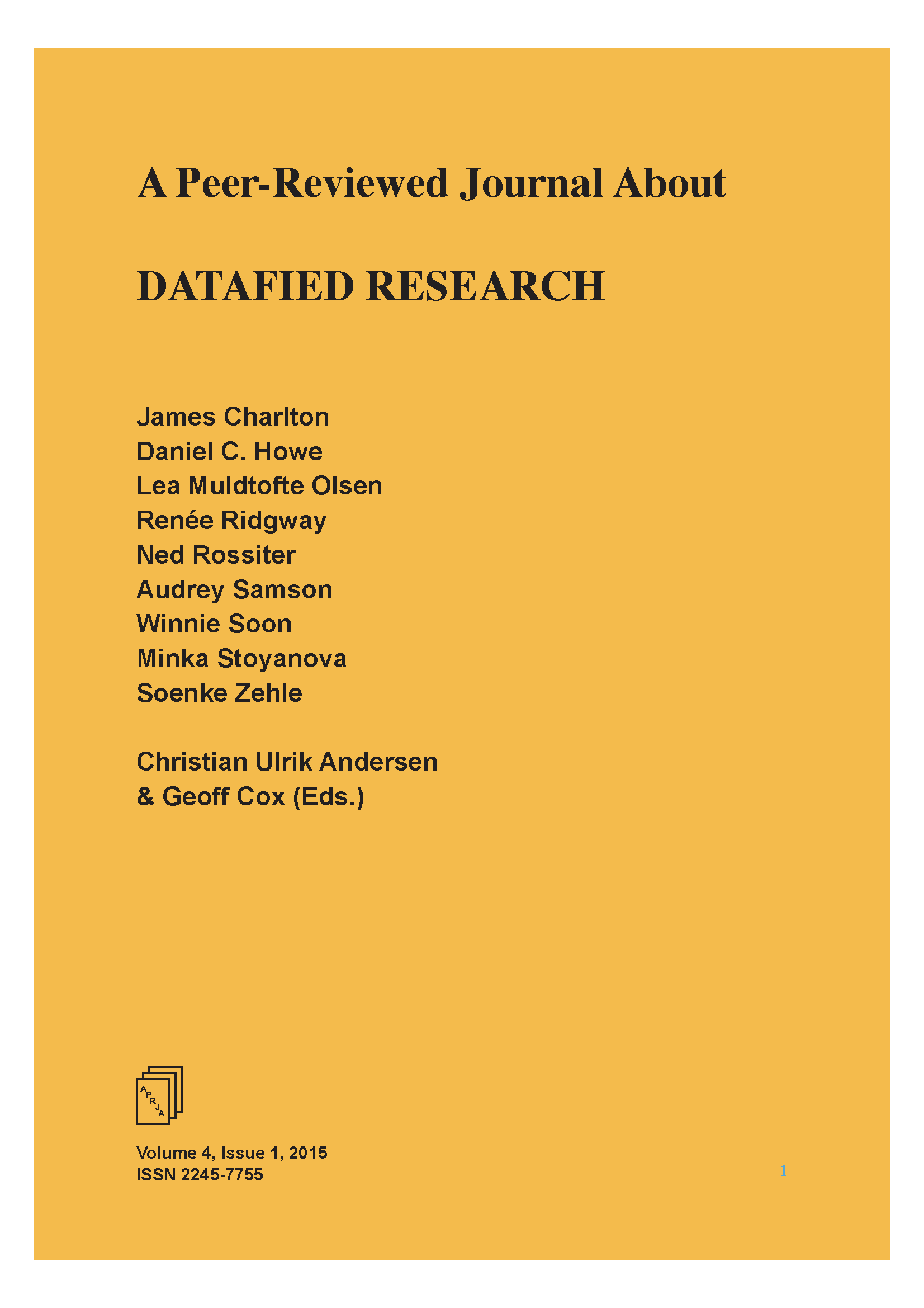Data Politics and Infrastructural Design
Between Cybernetic Mediation and Terminal Subjectivity
DOI:
https://doi.org/10.7146/aprja.v4i1.116101Abstract
The current celebration of invisible design strategies claims to be the inevitable next iteration of a process that deliberately deemphasizes autonomous user agency to ‘empower’ ever-more efficient forms of interaction through natural interfaces. It makes sense to move outward from the user, now situated and redefined as a node of multiple infrastructures. Yet rather than focusing on this networked self, we instead see a critical purchase through analyses of how overlapping infrastructures constitute the user as a new kind of economic and epistemological subject. Such an undertaking is no longer a matter of making visible the invisible. Part of what needs to happen is an exploration of how the digital economy changes the way we understand and constitute infrastructure.
Downloads
Published
Issue
Section
License
Copyright (c) 2015 A Peer-Reviewed Journal About

This work is licensed under a Creative Commons Attribution-NonCommercial-ShareAlike 4.0 International License.
Copyrights are held by the individual authors of articles.
Unless stated otherwise, all articles are published under the CC license: ‘Attribution-NonCommercial-ShareAlike’.
The journal is free of charge for readers.
APRJA does not charge authors for Article Processing Costs (APC)


